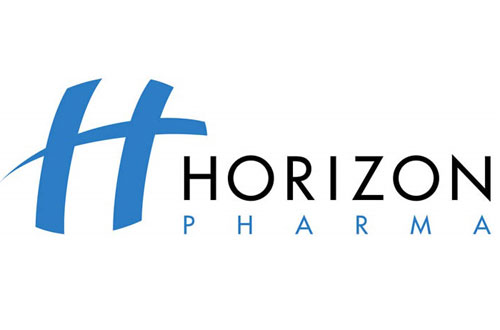
Horizon Pharma is on course for US approval of its drug teprotumumab as a first alternative to surgery for bulging eyes – or proptosis – caused by thyroid eye disease (TED).
The FDA’s Dermatologic and Ophthalmic Drugs Advisory Committee voted 12-0 on Friday that the benefits of teprotumumab outweigh the risks for the treatment of TED, making approval by the FDA on or before its 8 March action date more likely.
The insulin-like growth factor type 1 (IGF1) receptor inhibitor was shown in the OPTIC study to improve proptosis compared to placebo, with almost 83% of patients with active TED who took intravenous teprotumumab meeting the primary endpoint of a 2mm reduction in eyeball protrusion, compared to 9.5% of the control arm.
Teprotumumab has breakthrough therapy, orphan drug and fast track designations from the FDA. That reflects the fact that at the moment TED is generally managed with corticosteroids or radiotherapy in the active, inflammatory phase, followed by multiple surgeries to shave bone from the eye socket, spread out over a one to three-year period.
In severe cases, proptosis can become disfiguring and disabling, and can even result in sight loss in some patients. It’s most often caused by an overactive thyroid gland (Graves’ disease), and occurs in around one in four people with that condition.
Horizon’s drug dials down the inflammation in the eye, quickly alleviating symptoms including double vision, according to Horizon.
Documents released by the FDA reviewer ahead of the meeting noted some concerns about the size of the cohort in Horizon’s trials (90 active TED patients) but overall said the efficacy of the drug had been demonstrated in “two adequate and well controlled studies”.
Side effects included high blood sugar levels – which the reviewer said might require monitoring and insulin to maintain control – as well as muscle spasms and hearing impairment which might need a warning or precaution on teprotumumab’s label if approved.
“TED can affect patients both physically and emotionally, limiting their ability to perform everyday activities like driving, working, reading, sleeping and participating in social activities,” said Jeff Todd, president and chief executive of patient organisation Prevent Blindness.
“As an organisation dedicated to helping patients with vision impairment, and those who are at significant risk, we are extremely encouraged by today’s vote and hopeful this will change the future of TED treatment,” he added.
Horizon acquired teprotumumab through its $145m acquisition of River Vision in 2017, and has said that around 15,000 to 20,000 active TED patients might be eligible for treatment with the drug in the US each year.
Analysts at Jefferies have suggested it could launch with a price tag of around $150,000 per year, which would translate into a $750m sales opportunity.




